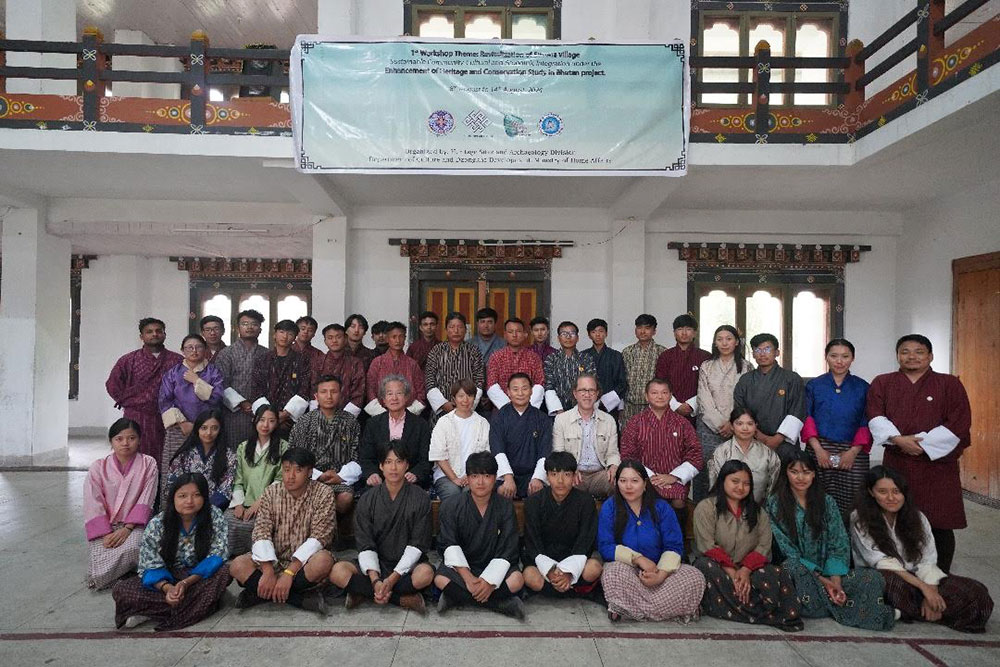Staff reporter
Twenty-five final-year architecture students from the College of Science and Technology (CST) attended the workshop on the ‘Revitalization of Eusuna Village: Integration of Culture and Economy for Sustainable Community Development”’in Paro from August 8 to 15.
The workshop is one of the activities under Department of Culture and Dzongkha Development’s (DCDD)Enhancement of Heritage and Conservation Study in Bhutan Project.
The DCDD in collaboration with ArchiHeritage Plus (AH+), Japan conducted the workshop, which was funded by the Oriental Cultural Heritage Sites Protection Alliance.
The event was aimed at addressing key issues and challenges faced by the village through interaction, surveys, and assessments.
Students developed proposals to sustainably revitalise the village, enhance the local economy, and improve the quality of life, all while preserving its cultural heritage.
Additionally, the workshop was aimed at assisting students to gain a better understanding of their ongoing ‘Heritage Conservation I’ module, which began in July of this year.
The initiative created a platform for students to move beyond mere documentation, allowing them to gain deeper insights into rural life, settlement patterns, and architecture.
Officials from DCDD said that the workshop also aimed at creating a replicable model for other rural communities, showcasing how sustainable development and cultural conservation can work together to revitalise and empower local economies.
In line with the Memorandum of Understanding between the Royal University of Bhutan and the Ministry of Home Affairs, the DCDD has collaborated with CST over the past two years to revise the curriculum of the Architecture and Civil Engineering Department.
This revision aims to include modules on traditional construction and heritage site conservation.
Participants shared that they gained hands-on experience in problem-solving with cultural heritage as an asset, enhanced their understanding of the socio-economic aspects of settlements, deepened their knowledge of vernacular houses and their settings, and developed communication and teamwork skills.


